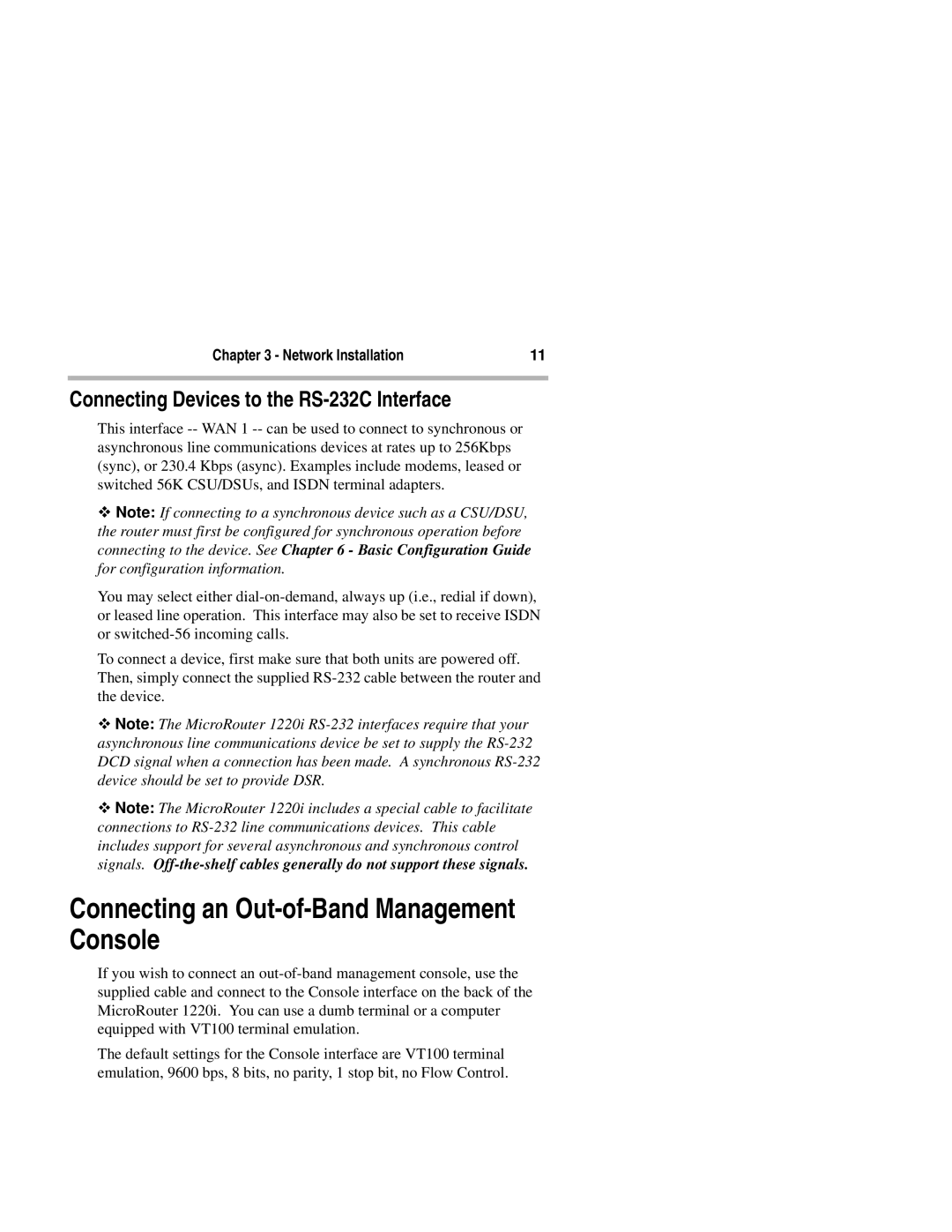Chapter 3 - Network Installation | 11 |
Connecting Devices to the RS-232C Interface
This interface -- WAN 1 -- can be used to connect to synchronous or asynchronous line communications devices at rates up to 256Kbps (sync), or 230.4 Kbps (async). Examples include modems, leased or switched 56K CSU/DSUs, and ISDN terminal adapters.
Note: If connecting to a synchronous device such as a CSU/DSU, Lthe router must first be configured for synchronous operation before connecting to the device. See Chapter 6 - Basic Configuration Guide for configuration information.
You may select either dial-on-demand, always up (i.e., redial if down), or leased line operation. This interface may also be set to receive ISDN or switched-56 incoming calls.
To connect a device, first make sure that both units are powered off. Then, simply connect the supplied RS-232 cable between the router and the device.
Note: The MicroRouter 1220i RS-232 interfaces require that your vasynchronous line communications device be set to supply the RS-232 DCD signal when a connection has been made. A synchronous RS-232 device should be set to provide DSR.
Note: The MicroRouter 1220i includes a special cable to facilitate vconnections to RS-232 line communications devices. This cable includes support for several asynchronous and synchronous control signals. Off-the-shelf cables generally do not support these signals.
Connecting an Out-of-Band Management Console
If you wish to connect an out-of-band management console, use the supplied cable and connect to the Console interface on the back of the MicroRouter 1220i. You can use a dumb terminal or a computer equipped with VT100 terminal emulation.
The default settings for the Console interface are VT100 terminal emulation, 9600 bps, 8 bits, no parity, 1 stop bit, no Flow Control.
